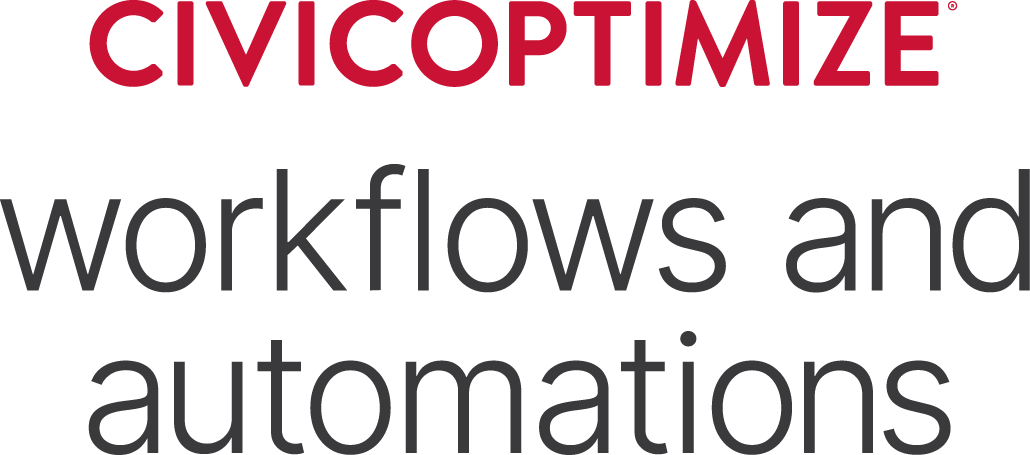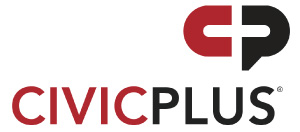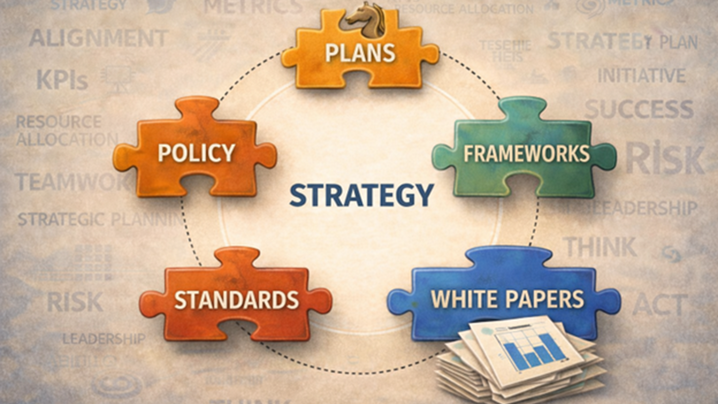- Transcripts
-
Transcripts are generated using a combination of speech recognition software and human transcribers and may contain errors. Please check the corresponding audio before quoting in print.
Joe Supervielle:
So we'll move on to once you're in that first role, getting back to how can we maximize it for the early career professional like yourselves, but also to get the most out of you to benefit the organization itself. We've all read about the mass retirements, silver tsunami, and a lot of people retiring currently and over the next 5, 10 years, so the next generation of leaders is kind of a catch phrase that gets thrown around a lot. But before people like you can be in that top level, city manager leadership role, there's a start, there's always a start and a way to build. So this first role or two, what kind of circumstances... We covered this. This was kind of the point of the game earlier. What things are important to you to keep you engaged? But the work itself and how a boss can interact with you, what kind of circumstances kind of set you up for success the best ways? And you can speak to your personal experience at your respective locations or just what you've heard from other Fellows.
Desiree Casanova:
I think a big thing that comes to my mind first off is mentoring, having someone and no matter the position, whether it's an ICMA Fellow, whether it's just a young professional in the organization, knowing that they have a mentor and someone that they can go to for questions about how the organization operates, type of career paths that they might be interested in and understanding the skill sets that they have that can be developed to get them where they want to go. I think having someone to talk to is really important, especially for younger professionals so that they can grow and develop themselves to where they want to be. In addition to that, I think communication and having either monthly meetings, not just during your evaluation, but saying, this is how you're doing, these are the things that I see that you're doing well at.
This is a project I would love for you to work on. Would you be interested in as well as the young professional asking for more advanced work. I think having that communication with the supervisor is going to allow that person to be able to push themselves to a new potential and then to say for someone else to think of them and say, "Wow, that was somebody that I know could do more and they asked for more. And when I asked them to do a project, maybe that they were not sure of or had a research, they took it, they grabbed it and they ran with it." I think those two big things, the communication and the mentoring, are critical for young professionals to be able to understand what they want to do in the profession and how they can help the organization grow and evolve.
Joe Supervielle:
So not just on annual performance evaluations, but weekly, even day to day feedback, there's some that might have some bosses, whether they're the manager or just department head supervisors, that aren't sure how to effectively give feedback because they're worried... I hate to say younger, but younger people can't necessarily take it or don't know how to handle it properly. That might be an unfair stereotype, but it is a genuine concern I've heard from manager types. So either of you can speak to this, but Chris, why don't you start? Really the question is, can managers be direct? Can they be honest? Are you all open to criticism, constructive criticism, on, "Hey, here's what you need to do better."? What do you think?
Christopher Sponn:
Yeah. So I think that it is fine to give people criticism and suggestions. I think really what happens is there just needs to be a clear line of human communication and trust between the two parties. I think sometimes people don't like stuff that becomes unexpected. They didn't know that that kind of review was going to happen all of a sudden or it wasn't very clear what the expectations were. You do see sometimes what the expectations people kind of... On both sides, they're kind of confused on what had to be done. So I do think that sometimes that may create some conflicts, but really for me personally, and I think a lot of others, they do want to get that criticism, that advice. I find that a lot of my fellow Fellows, they don't like it when they're not getting any feedback or things like that. They want to know where they can improve. They want to know like where they can help.
They want to show their worth to the team. So actually I would welcome more criticism. I do believe a lot of people will also, because it's only improving them and it does create a better product for the team also, instead of not saying anything or telling someone good job, because in the end, we're here to serve the residents and we need the best product possible.
Joe Supervielle:
And Desiree, is it possible that it's not even... Criticism's not necessarily the right word but, "Hey, we need a little bit more in this area, so let's talk about how we can do training or have that mentor explain it." Is it important to have the follow-up on how to actually improve instead of just kind of random expectations that you're not even necessarily aware of? How can the boss better not just communicate, but what can they provide to help you get to the point they are needing you to get to?
Desiree Casanova:
Yeah, I definitely think in relation to the first question that it does need to be communicated and it does need to be stated when something isn't going as needed or as wanted. I think it does have to be done tactfully, that is important. I do see that a lot of our younger generations are very sensitive. It does depend on the person, but people do need to realize that criticism and feedback is essential for growth. It's essential for becoming better. If we were perfect and we were robots, then nobody would ever tell us that we need to improve on anything and we're not, we're humans and we make mistakes and we do need to learn. And that's how we grow. I think that a mentor or supervisor can definitely say, "These were some areas of improvement that I realized, and here are some resources that I found or I found this project and if you work on this project, it's going to help you and then we can talk about it together and we can see what you did differently this time."
Maybe there's trainings, resources, different types of exposure that that person can give to the employee for them to get better. I think without doing that, you're kind of just pointing out that something isn't right but you aren't doing anything to solve the problem either. You're just indicating that there is a problem. So I think that the solution to it is just as critical as explaining it to the employee and a good and an honest and a genuine employee will say, "Thank you because I want to get better and I appreciate that." And that's the type of employees that we want in this profession.
Joe Supervielle:
Yeah. And it's not even necessarily that someone's doing it wrong, it's just that they don't know how to do it yet. So that goes back... We talked about clearly defining a career path and ways to advance. That's part of it too. It could be a, "Hey, we'd like some contributions on this project. You might not be ready for this part of it, but let's talk about it or let's train on it or just shadow someone who is in charge of it to get the experience and learn for next time."
Desiree Casanova:
Exactly.
Joe Supervielle:
So to close up here, a few questions from some ICMA members, just direct, honest feedback is kind of what we're looking for, unfiltered from both of... The first one is, when the two of you talk with your job about your peers who are not in local government, they have other career paths, do they tell you or ask what they think about it? Is there a little bit of a why did you do that? Is it even a, "Hey, why don't you come work over here? Because it seems like you've got all these stressful projects going on and maybe they're not paying you enough for that headache."? The question was essentially, what do your peers think about your job? Chris, go ahead.
Chris Sponn:
Yeah. I think a lot of my peers think that it's great that I work in local government. That's very important. They know that I'm a passionate individual that wants to create opportunities for everybody and make sure everyone has a fair shot at life and they can be what they want to be. So it only makes sense to them that I work in local government. And I do have friends, they work in the private sector and things like that, and they mention like, "Hey, apply here," or, "You could do this." And I'm just like, "Okay. Thank you, but I don't want to apply."
So yeah, I think it just... For the most part, I think that they do appreciate the work that you're doing. And I do have a few friends who actually do want to work in local government, but they're so strapped down by the loans that are just so huge, they can't do local government right now. They just can't do it right now. They need to continue to work, gain more experience, and then hopefully they can wiggle their way in through a higher level, which is higher pay and things like that.
Joe Supervielle:
Desiree.
Desiree Casanova:
The continuous feedback that I get when I tell someone I work in local government, is that they can hear and see my passion, my enthusiasm, and my devotion. They say, I can tell how much you want to help your community and how much change you want to make in the world. And I see that and I'm so happy to know that someone who works in government is as passionate about it as you are. So it's been great responses on it. And it's also been a lot of responses. Well, what does your county do? What's the difference between a city and a county? Which is great because then I love to educate them about it and say, look, look how awesome it is. Look at all the things that we work on and the special projects that we do that impact you and impact other people. But I definitely do hear from them consistently that they just say, "Wow, you really love your job." And I have the privilege of saying yes, I do.
Joe Supervielle:
Yeah. Well, that's great to hear. Have you also explained... Had to explain the difference between a mayor and a city manager or a county manager?
Desiree Casanova:
Yes.
Joe Supervielle:
The difference between the politics side and, Hey, we're actually just here regardless doing the day to day grind for our citizens?
Desiree Casanova:
Exactly. And explaining the difference of commissioners and a city or a county manager, how that level of hierarchy works, what different departments there are and what department does this versus what department does that. A lot of them just honestly don't know. And when you educate them, they actually are pleasantly surprised with how much government does on a daily basis behind the scenes. They just don't realize it. So it's really eye-opening for them and it's great for them to hear about.
Joe Supervielle:
So the next question, Desiree, actually just covered a little bit but it was, what can local government do better to engage with citizens in their 20s? The default answer is always social media, but what else? And I know Chris talked about that, the website, we are in a digital age, but that's kind of just a blanket answer that doesn't really explain how. Every local government has a Twitter feed and whatever else, but it's not necessarily making an impact. So just based on what you two just said, it sounds like getting more advocates for local government, regardless of position or early career or not, can help one on one. But kind of on a bigger scale, what can local government do to engage young citizens that... I mean, the question reference people in their 20s, but really anyone, how can they do a better job with that engagement? Chris, go ahead.
Chris Sponn:
Going back to social media, improving that and really kind of just reflecting, seeing what other communities are doing and what works and kind of looking at the ICMA sessions and kind of seeing what has been working in other places, there's no need to reinvent the wheel. But I also think we touched upon these points earlier, we need to be doing outreach into our schools. We also need to be doing outreach into our high schools, having internship opportunities, hopefully paid opportunities too, for them, just so they can get that experience and exposure because it's so hard to get into the door at first. Initially, as an early career professional, you need X amount of years experience in this specific field. So if we can get people engaged at a younger age in high school, college, I know ICMA has the different partners on campus.
So that's why I was able to join the one at Syracuse and I was able to connect with different local governments in New York State and out of state also, we had someone from Arizona that was talking to us. So really figuring out the connections at these campuses and just being like, "Hey, I'm from here, we have these opportunities." Everything's easy nowadays, you can do Zoom. You can talk to people from anywhere in the country. And there are a lot of people who are interested while they're in school, in college, their undergrad, they really want to get a job. They want to grab something up, they don't want to wait around. So if you're able to get that early touch with them, I think it's really important.
Joe Supervielle:
The next question was simply what motivates you? But we've kind of already answered that. I think the enthusiasm has clearly shown from both of you that you just, you're here to serve the public. So anything else you want to add to that?
Chris Sponn:
Yeah, no. I just really wanted to say, I think that it's important that we realize that local government is there for us and it's here to help people. And I think it's important that they realize that. Growing up, I didn't really have that connection with my local government, even through my high school years, I really didn't see that connection. And I feel like that if I had that connection, if someone did outreach and things like that, I would've been able to start my career in local government maybe even earlier. It's only along the way that I saw this difference as I grew and understood the effectiveness of government. So what really drives me is just to make sure that government involves everybody. We're reaching out to everybody. We have workforce opportunities for people. They need to know that the resources are there for them because government can just really change your life. It changed Desiree's life. She has this great career going in Sarasota and it changed mine. I'm seeing that I can make a lot of differences through policy, and I'm excited to see what's going to happen down the road.
Joe Supervielle:
Yep. And tying it back to what we talked about earlier too, just meaningful work. Every job at any level has some tasks that are kind of mundane or you just have to get through because you have to get through them, reading email obviously is just one of them, but I think being involved in projects you care about and that you see the positive impact on the community is what motivates really anyone in this industry. One or two questions that you all would have of the city managers so they can be somewhat hypothetical or rhetorical or very specific, but if you had a chance to have managers just answer your questions, what would you ask them if you had them one on one in the room? Desiree, go ahead.
Desiree Casanova:
Sure. One of my questions would be, are you creating any entry level, professional positions in your organization to attract and develop the next generation? What are those positions and what are you doing to create those?
Joe Supervielle:
Chris.
Chris Sponn:
Yeah. You know really, I think I'm able to like... Being part of ICMA Fellowship, I have a lot of mentors I'm able to ask them a lot of questions. So I can't really think of anything specifically at the moment, but I would be curious just to see what is their plan for the future workforce and do they have a realistic plan in achieving that? And I would also be curious their thoughts on the hybrid work from home model and what they thought of that, genuinely thought of that because I do find that to be a very interesting topic to talk about because people have a lot of different opinions on it. And we're living in the moment right now, the world's changing before us. So I really enjoy just to hear everyone's viewpoints on that.
Joe Supervielle:
And last question, who has a better beach Sarasota or Pinellas?
Desiree Casanova:
That's a great question. So Sarasota, hands down. We have Siesta Key, it's one of the most beautiful beaches in the world. It has been nominated and voted that for many, many years. This is an ongoing conversation between Chris and I. So this is the best question to ask.
Joe Supervielle:
Chris, rebuttal?
Chris Sponn:
Yeah. I mean, I'm just confused by the question because it's not even really a question. Kind of this non-factor, Pinellas County is actually superior to Sarata. I mean, I didn't even realize they had beaches till I got here. It's always about Pinellas. Come down to Pinellas, Clearwater Beach, you see the sunset. It's just beautiful. Beautiful white sand, clear water, it's just amazing, amazing stuff. Great parking. You can do tons of great stuff, but I might go down to see Sarasota beach... The beaches there, or whatever. I might go see it sometime. We'll see.
Joe Supervielle:
Free publicity for the tourism departments. I've spent a good amount of time in Miami too. So those beaches are worth a mention. But honestly, my right and answer is actually further up the Gulf Coast in the Destin area, I think they might have both of you beat. So unanswerable questions, no right or wrong answer there, but Florida beaches are nice. And as we were talking about earlier, a nice kind of carrot to attract employees that not necessarily every location has. So I'm glad you two are able to enjoy that. Thanks for joining us today. We'll link to Desiree and Chris' LinkedIn profiles on the podcast webpage for any managers or local government people out there that might be interested in meeting them at the next ICMA event or just online, not just them two, but their whole network of early career professionals because that was kind of the point today.
Just getting better communication and engagement between the senior leadership and early career professionals like Desiree and Chris. So thanks for joining us today. The ICMA Fellowship Program cycle begins again in September. So managers, if you're listening, if you have people you think might be interested in that, you can forward... The link will also be on the podcast webpage for new people to apply to, and other programs like ICMA's mentored ship and coaching programs will be linked as well. So lots of resources to kind of bridge the two levels of career and make sure local government organizations everywhere are getting the most out of each side. So thanks again, Desiree and Chris.
Desiree Casanova:
Thank you. It was a pleasure.
Chris Sponn:
Thanks for having me. I really enjoyed it.
Guest Information
Desiree Casanova, assistant to the county administrator, Sarasota County, Florida; former ICMA Local Government Management Fellow, Sarasota County, Florida
Christopher Sponn, deputy workforce development director, Tompkins County, New York; former ICMA Local Government Management Fellow, Pinellas County, Florida
Episode Notes
If you missed part one, listen now.
Part two picks up with Desiree and Christopher answering questions ICMA CAOs and department/team leaders want to know (but can't always directly ask) of early career professionals. Then concludes with questions the guests have for local government leaders.
Resources
ICMA Local Government Management Fellowship. Applications open September, 2022.
Sponsor Offers
Get your free copy of the CivicEngage® Website Redesign Tool Kit to help plan your next website project. Download Toolkit >





